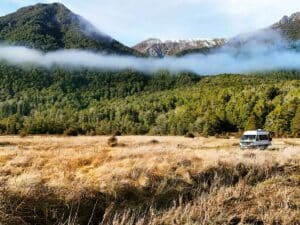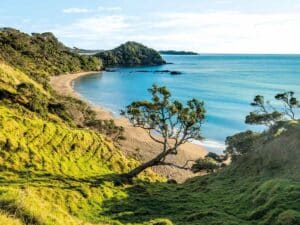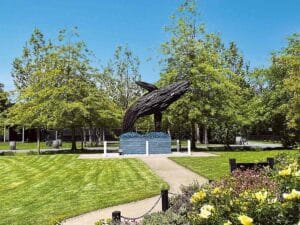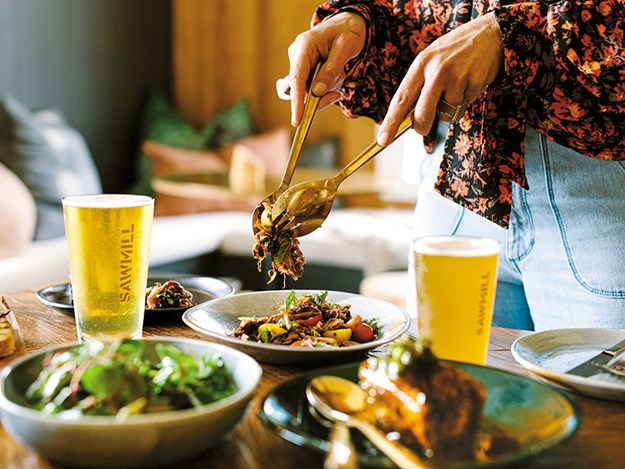
As the spring afternoon began to wane, slanting light gilded the view of trees and hilly grassland. I took an extravagant gulp from my glass of crisp, clear pale ale. It carried a hint of tropical fruit. In a contemplative mood, I pondered the quote, sometimes attributed to Benjamin Franklin: “Beer is proof that God loves us and wants us to be happy”.
Two years ago the owners of the Sawmill Brewery and Smoko Room near Matakana would have found joie de vivre hard to come by when their brewery was almost destroyed by a fire that started in an innocent-looking stack of clean tea towels. But when Kirsty McKay, joint owner with husband Mike Sutherland, joined me on the patio it was clear that happiness had returned.
“The re-built brewery opened in August and we are delighted with the building,” she said. “The exposed timber is untreated storm-felled South Island beech and the joinery is recycled from the old Dannevirke Hospital in Hawke’s Bay. It was all designed and built by locals.”
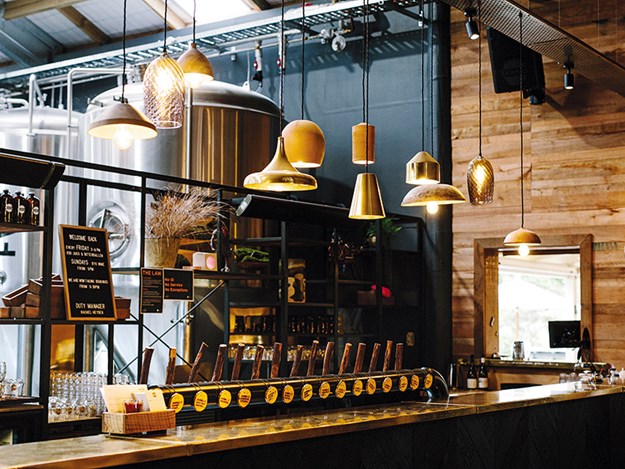
The building embodies a philosophy that underpins all operations at the Sawmill Brewery and Smoko Room. The company is not only based on the production of good beer and delicious food but also runs as a force of good for the environment. Fifty-four solar panels supply electricity, a million gallons of the water they use is collected from the roof each year, kitchen waste is composted, greywater is recycled for farm irrigation, and spent grain goes to local farmers for stock feed or is made into grain bread and crackers for the Smoko room eatery.
Some of the beer is processed using waste bread collected from food outlets and then the spent grain is sent to the Wild Wheat Bakery to be made back into bread for the beer brand Citizen. As a result of all this mindful planning, Sawmill is New Zealand’s first brewery to be certified by B Corp, an international certification recognising commitment to social and environmental responsibility and transparency.
I pulled up in the company’s carpark and was enveloped in the warm, sweet smell of malted wheat. The building opens up to the towering stainless steel vats of the brewery’s working parts, and although the area is fronted by a tap bar for visitors, there was no attempt to disguise the fact I was walking into a commercial factory. At the far end of the bar, another entrance introduces the woody, rustic looking Smoko Room, a cosily cushioned space that opens to the patio, where I sat imbibing at a wooden table.
The company’s philosophy continues with the eatery’s menu. “As a restaurant, we have the opportunity to expand what we eat to include things that traditionally may not be thought of as good food,” said Kirsty. “This lessens the impact of over-harvesting and encourages conversations about what is edible. We have a wonderful chef who can turn many kinds of raw produce into something good to eat.”
She showed me the day’s menu. Among the offerings were braised wild goat, mackerel, flounder with watercress, and pilchards. I might have chosen a kahawai steak with tamarind glaze and fermented chilli, or maybe the smoked mullet pâté and pickles, and definitely, the kawakawa native foraged salad of New Zealand spinach, beach spinach, red vein sorrel, bronze fennel and ice plant. I’d never heard of any of them.
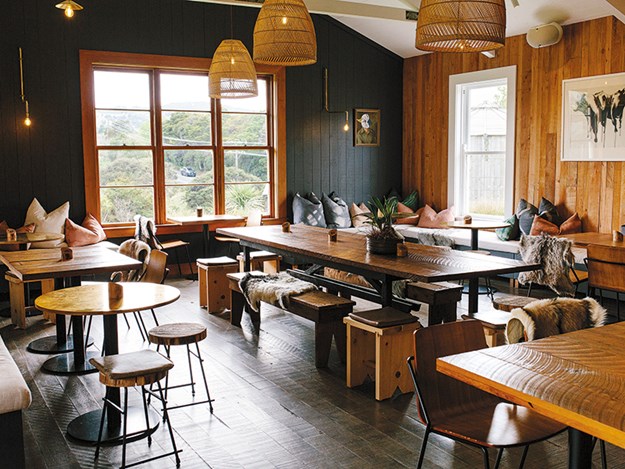
“Many people come here for the food,’ said Kirsty, “but naturally it’s the beer that is our mainstay.”
Ten years ago the couple only knew how to drink it. Mike, a food exporter, and lawyer Kirsty moved north from Lyttelton seeking a change of lifestyle. But the new job Mike had organised in Auckland didn’t work out. And so when the Sawmill Brewery came up for sale, the couple bought it. They had “always wanted to make something”. Back then, although it was a separate company, it was on the same site as The Leigh Sawmill Café. It was moved to the current site in 2016.
“Although Mike had studied viticulture and understood the science of it, we had a lot to learn when we started,” said Kirsty. “It was learning by doing and, for a long time, we worked like crazy people, spending long hours in the brewery getting to know the processes involved. Our aim was to have our customers enjoy great beer in the best condition. It is made with excellent ingredients and a lot of attention. The amount that was once produced in a year is now produced in a week. We make around 30 varieties annually. Fifteen are sold on tap in the Smoko Room and all are sold around the country in cans, bottles or on tap.”
Back on the patio I drained my glass and made a decision. Next time I was coming up this way I’d bring some friends and spend a long afternoon with good beer, good food and good company. It doesn’t get better than that.
Find motorhomes, caravans and RVs for sale in NZ

